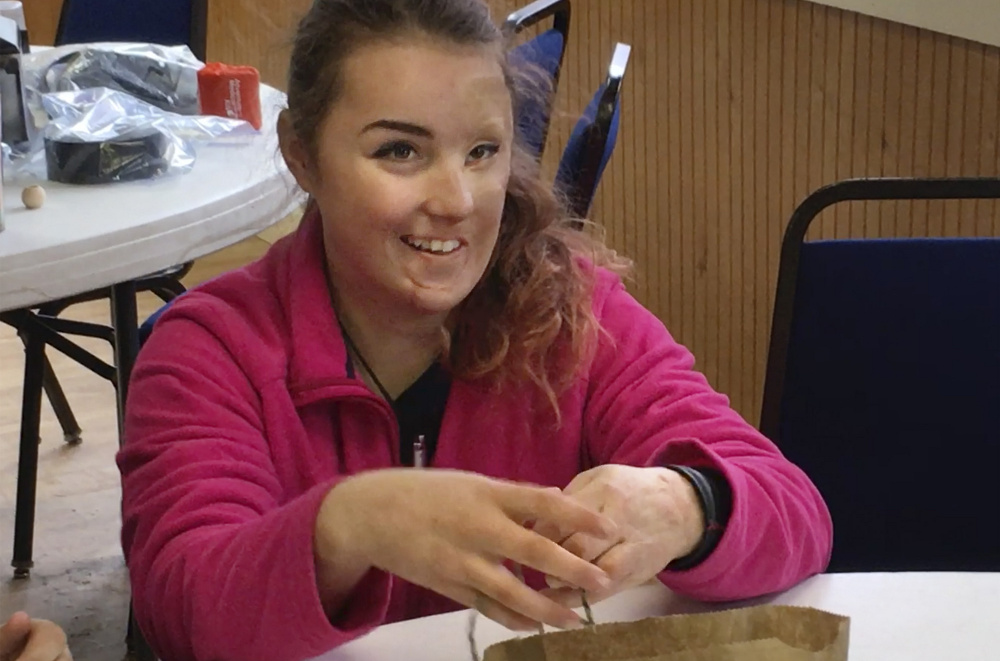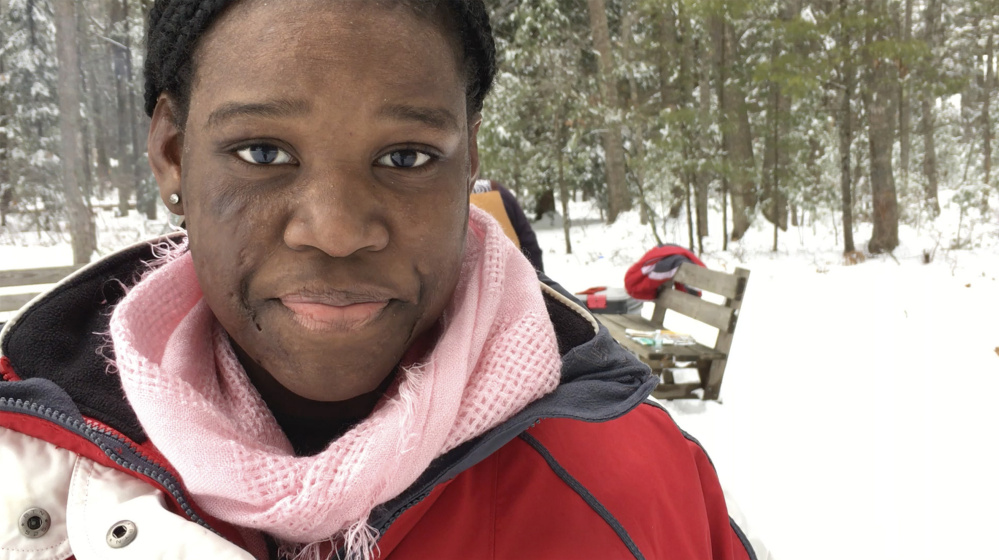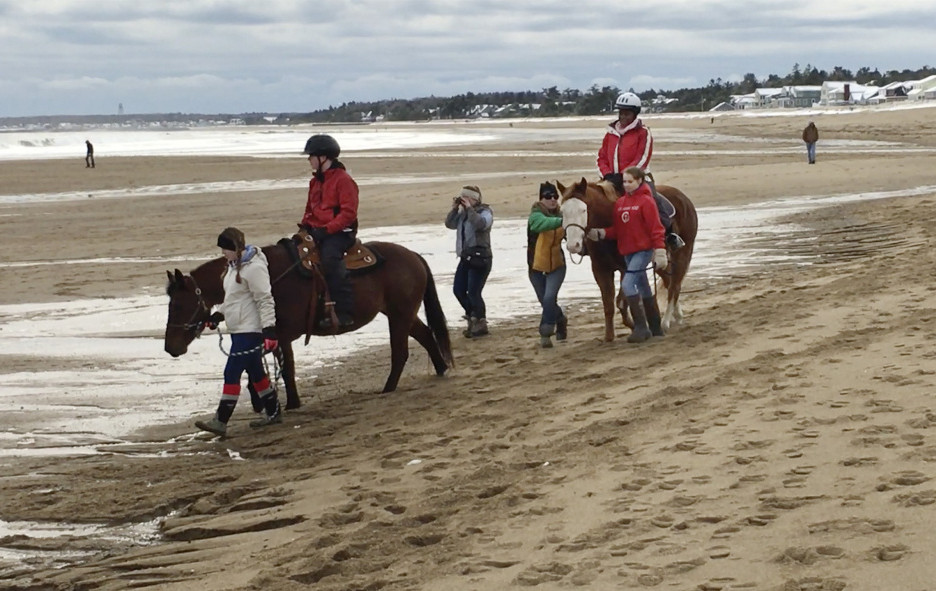OLD ORCHARD BEACH — On a cold, gray Sunday afternoon, Tatyana Shakhray, 18, waits outside the main office at the Oceanwood Camp and Conference Center in Ocean Park with a group of young people. They’re about to go horseback riding on the beach, just a short walk away.
Tatyana’s long brown hair is pulled back in a ponytail. She’s wearing a white knit hat and rose-colored parka. The shiny scars etched from her forehead to her chin, erasing her left eyebrow, are nothing unusual in this group. The 21 young people are all burn injury survivors.
Tatyana was 6 months old when she fell into a wood stove at her home in Ukraine. After numerous surgeries in the United States, her family moved here and settled in Worcester, Massachusetts.
When she first came to the Fire and Ice Burn Survivors Winter Camp in Maine, put on each year by the Portland Fire Department, she was a shy 14-year-old struggling to make friends.
“Now I’m like very open about everything, about my burns and interacting with other people,” says Tatyana, who works as a snowboard instructor at Wachusett Mountain in Massachusetts. “If I hadn’t gone to burn camp I think I’d still be that shy little kid in the corner.”
Portland Fire Capt. David Petruccelli founded the winter camp program 10 years ago. He’d been active in burn camps in other states and decided it was time to start one in Maine.
The campers, who range in age from 8 to 18, spend four winter days participating in activities that most have never done before: rock climbing, skiing, survival skills training, horseback riding. They also spend time with other young people who have similar injuries that have left scars.
“We provide them with opportunities that they wouldn’t find on a regular day and we challenge them to get through it,” Petruccelli says. “We help build the confidence that they can get there, they can do it. They can do anything anybody else is doing.”
That’s a lesson Frannie Saintil, 13, of New York City, has taken to heart. Frannie was burned over 80 percent of her body in an apartment building fire in New York when she was 6. She’s been coming to the camp since 2012.
“Confidence is a big key to me, especially nowadays in school,” she says. “A lot of people are judgmental and you have to have the confidence in yourself to believe in yourself. And I think this place helps me a lot.”
It also helps that there’s no pressure to share their stories.
“We don’t press them for how their injury happened or what brought them here,” Petruccelli says. “If they choose to talk about it we’re here and we’ll listen.”
For 13-year-old Kendra Ryder of Winterport, that’s a relief.
“That’s a big thing, (having to) explain your story over and over again,” she says.
Kendra’s story is all too common. She was a toddler when she bumped into the handle of a pan of boiling water. It toppled off the stove and scalded the side of her head, shoulder and arm. The number one cause of burn injury to children age 4 and under is scalding, according to the American Burn Association.
Every day, over 300 children nationally are treated in emergency rooms for burn-related injuries.
“It’s not like you’ve broken a leg and eight weeks later you’re back and you’re running and everything is fine,” Petruccelli says. “For children with image issues and (who are) trying to find their place in the world (a burn injury) is an added challenge for them.”
The Portland Fire Department raises money every year to cover the $1,200 cost per camper, so they all attend for free. All of the camp counselors, most of whom are firefighters, donate their time. Portland firefighter Sheldon Gregoire has been a volunteer since the program began.
“I’m potentially going to be on the other side, the guy that might take (a child) out of (a burning) building,” Gregoire says.
“Sometimes you can’t save somebody. This is my way of saying, all right, these kids made it. They’re so strong. They’re so uplifting.”
And so eager for people to understand that their differences are only skin deep.
“The biggest challenge is people treating you like you need extra help, like you’re a little slower,” Tatyana says. “But it’s like, you’re the same exact person (they are), except you have a scar.”
Send questions/comments to the editors.




